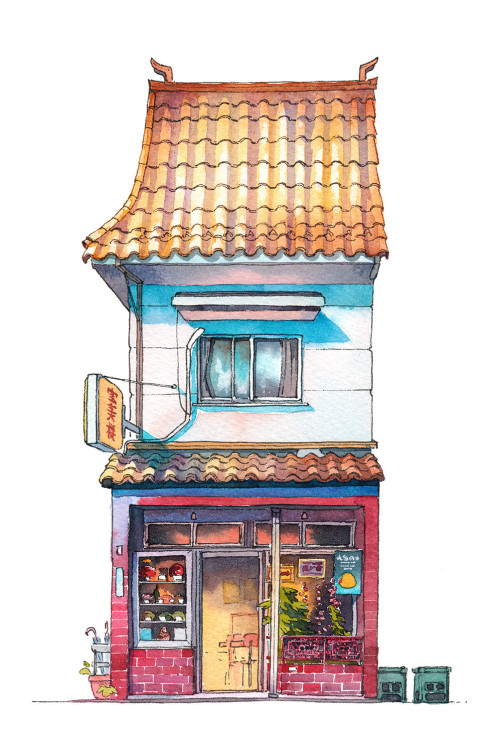Tumblr-vocab In Japanese
tumblr-vocab in Japanese

A brief overview of useful words to know, in case you switch the language of your tumblr to Japanese!
Posts (投稿数「とうこうすう」)
Text post - テキスト
Photo - 画像(がぞう)
Quote - 引用(いんよう)
Link - リンク
Chat - チャット
Audio - 音声(おんせい)
Video - 動画(どうが)
Notes - リアクション
Reply - 返信(へんしん)
Reblog - リブログ
Like - スキ
Tags - タグ
Source - 出典(しゅってん)
Blog (ブログ)
Account - アカウント
Username - ユーザー名(な)
Main blog - メインブログ
Sideblog - サブブログ
Draft - 下書き(したがき)
Queue - 予約投稿(よやくとうこう)
Schedule - スケジュール
Blog theme - サイトのテーマ
Settings - 設定(せってい)
Activity - アクティビティ
Past 24 hours - 過去24時間(かこ24じかん)
Biggest fans - 熱烈ファン(ねつれつ)
Most popular post - 人気投稿(にんきとうこう)
Interaction (相互作用「そうごさよう」)
Ask box - 受信ボックス(じゅしん)
Anonymous ask - 匿名での質問(とくめいでのしつもん)
Tumblr IM - メッセージ
To follow - フォローする
Follower - ファン
X began following Y - XがYのフォローを開始しました(かいし)
Search tumblr - tumblrを検索(けんさく)
Blocked blogs - ブロック済み(ずみ)ブログ
Submission - ゲスト投稿
X submitted a post - Xからのゲスト投稿
X mentioned Y - XはYについて投稿で言及しました(げんきゅう)
More Posts from Earthquakedeer and Others
CAN I JUST SAY シ AND ツ ARE AMAZING BECAUSE THEY LOOK LIKE SMALL PEOPLE? DON'T FORGET ン OR ソ, THEIR PIRATE NEIGHBORS
I 10000% agree.

DON’T SCROLL PASS! FOUND THIS ON GOOGLE+ AND I FEEL LIKE IT IS IMPORTANT!
Edit: This post almost has 500 notes! The more people who sees this, the more help the Internet receives!








Tokyo Storefronts Series by Mateusz Urbanowicz.
Artists on tumblr.
Using すぎます・すぎる (too, too much)
Have you ever overdone it? Maybe you’re like me and eat too much pizza. Here’s how you can tell your friends about it in Japanese.
formula: stem of な-adjective/ stem of い-adjective/ conjunctive form of verb + すぎます・すぎる
stem of い-adjective = word without い
明るい (akarui) → 明る (akaru)
優しい (yasashii) → 優し (yasashi)
高い (takai) → 高 (taka)
stem of な-adjective = word without the copula
きれいです (kirei desu) → きれい (kirei)
有名です (yuumei desu) → 有名 (yuumei)
便利です (benri desu) → 便利 (benri)
conj. form of verbs = the verb without ます
食べます (tabemasu) → 食べ (tabe)
飲みます (nomimasu) → 飲み (nomi)
行きます (ikimasu) → 行き (iki)
Here are some examples of すぎます in action
1.) この本は難しすぎます。(kono hon wa muzukashi sugimasu) -> This book is too difficult.
2.)東京の映画館は高すぎる。(tookyoo no eigakan wa takasugiru) -> Tokyo movie theatre’s are too expensive.
3.) このブラウスはちょっと派手すぎますね。 (kono burausu wa chotto hade sugimasu ne) -> This blouse is a little too showy, isn’t it?
4.)今のアパートは不便すぎますから、新しいアパートを探しています。(ima no apaato wa fuben sugimasu kara, atarashii apaato wo sagashite imasu) -> The current apartment is too inconvenient, so I’m looking for a new one.
5.)日曜日はお昼まで寝ました。ちょっと寝すぎました。(nichiyoubi wa ohiru made nemashita. Chotto nesugimashita) -> Yesterday I slept until noon. I slept a little too much.
6.)昨日ビールを飲みすぎましたから、今日はお酒は飲みません。(kinou biiru wo nomisugimashita kara, kyou wa osake wa nomimasen.) -> Yesterday I drank too much beer, so today I will not drink alcohol.
7.)ノドヨドはいつもピザを食べすぎる。(nodoyodo wa itsumo piza wo tabesugiru) -> Nodoyodo is always eating too much pizza.

“Long way Back”
住む vs.暮らす
Both of these verbs means “to live” but there is a slight nuance in meaning.
住む「すむ」simply means to live somewhere, the act of of you residing in a house, apartment, etc
暮らす「くらす」means to live but focuses on the 生活 (daily life) and interactions with the place you live
例えば:
僕は東京に住んでいる。This sentence simply means that I live in Tokyo, that I existence and take residence in Tokyo.
僕は東京に暮らしている。This sentence means that I not only reside in Tokyo, but my daily life and interactions are in Tokyo. May imply that I also work there, my whole life is in Tokyo, more than just a place of existence.
Both words are interchangeable, so if you use one in place of the other it’s totally fine, they only really matter when you want to imply something more in the meaning. Also, 一人暮らし「ひとりぐらし」 is a noun that means to live alone or have a solitary life. Thought you guys might find that word useful!
Things to say to a friend in Spanish 💖

When they’re going through a hard time
Todo irá bien. All is going to be okay
No te preocupes. Don´t worry
Yo te creo. I believe you
Yo creo en ti. I believe in you
Estoy aquí por ti. I´m here for you
Sabes que puedes contar conmigo. You know you can count on me
Tú me importas. You matter to me
Lo superarás. You will get over it
Déjame ayudarte. Let me help you
¿Qué puedo hacer para que te sientas mejor? What can I do to make you feel better?
Lo entiendo. I understand
Me importas mucho. I care about you a lot
Lo superaremos juntos / juntas. We´ll get through this together
When you are thankful they are there
Gracias por entenderme. Thank you for understanding
Eres un buen amigo / buena amiga. You’re a good friend
Sabía que me comprenderías. I knew you would get it
Gracias por cubrirme la espalda. Thanks for having my back
Gracias por todo. Thank you for everything
When you want to spend time together
¿Cuándo podemos vernos? When can we meet?
Te echo de menos / extraño. I miss you
¿Estás libre el __? Are you free on __?
Hazme saber si algún día quieres hablar. Let me know if you ever want to talk
Things to tell them everyday
Estás guapísimo / guapísima hoy. You look great today
Ese color te sienta genial. That color looks great on you
Siempre sacas lo mejor de la gente. You always bring out the best in people
Me acabas de alegrar el día. You just made my day
Things you should always say
Te quiero. I love you
Me encanta pasar tiempo contigo. I love spending time with you
Mis mejores recuerdos son contigo. My best memories involve you
Me inspiras. You inspire me
Me encanta que nos hayamos conocido. I love that we met
Eres simplemente genial. You are just great

you owe it to yourself to keep moving forward.
Tag your OC:
OC 1: wow i'm really thirsty
OC 2: [rummages through bag and takes out full water bottle]
OC 1: hey, thank--
OC 2: [opens bottle and chugs contents while maintaining eye contact]
OC 1:
German Vocab: Expressing your opinion
1. Basic Vocab:
die Meinung - opinion meine Meinung - my opinion zustimmen - to agree widersprechen - to disagree überzeugen - to convince richtig - right falsch - wrong
2. Expressing your opinion:
Meiner Meinung nach… - In my opinion…
Meiner Meinung nach ist Game of Thrones keine gute Serie. ~ In my opinion Game of Thrones is not a good show.
Ich meine/Ich finde, dass… - I think that …
Ich finde, dass du weniger Alkohol trinken solltest. I think that you should drink less alcohol.
Ich bin davon überzeugt, dass... - I’m convinced that…
Ich bin davon überzeugt, dass Katzen sehr sozial sind. I’m convinced that cats are very social.
3. Asking for Someone’s Opinion:
Was hältst du von …? – What do you think of …?
Was hältst du von Britney Spears? Magst du sie? ~ What do you think of Britney Spears? Do you like her?
Was denkst du über ….? – What do you think about …?
Was denkst du über das Rauchverbot? Bist du damit einverstanden? ~ What do you think about the smoking ban? Do you agree with it?
Was ist deine Meinung über …? – What is your opinion on …?
Was ist deine Meinung über vegane Ernährung? ~ What is your opinion on vegan diet?
4. Agreeing with someone:
Ich stimme dir zu. - I agree with you.
Du hast (völlig) recht. - You’re (completely) right.
Das finde ich auch. - I think so, too.
Ich teile deine Meinung. - I share your opinion.
Genau/Eben. - Exactly.
5. Disagreeing with someone:
Das kann sein, aber… - That might be so, but…
Das stimmt nicht. - That’s not true.
Da muss ich widersprechen. - I have to disagree with that.
Da liegst du völlig falsch. – You’re completely wrong with that.
Auf keinen Fall. - Absolutely not.
+ the not so polite way to disagree:
So ein Quatsch/Was für ein Blödsinn! – What nonsense/rubbish!
Du spinnst ja! - You’re crazy!
Du hast keine Ahnung! - You have no idea!
6. Expressing Indifference
Das ist mir egal. - I don’t care.
Es ist mir vollkommen egal. – I don’t care at all.
Keine Ahnung. - No idea.
-
 letscandyme liked this · 2 years ago
letscandyme liked this · 2 years ago -
 miapodoeszizy liked this · 2 years ago
miapodoeszizy liked this · 2 years ago -
 horses-who-smile liked this · 2 years ago
horses-who-smile liked this · 2 years ago -
 honey-langs reblogged this · 2 years ago
honey-langs reblogged this · 2 years ago -
 wizzitz liked this · 2 years ago
wizzitz liked this · 2 years ago -
 freshcupcakekryptonite liked this · 2 years ago
freshcupcakekryptonite liked this · 2 years ago -
 noritaro liked this · 2 years ago
noritaro liked this · 2 years ago -
 moonsinkfoxgirl reblogged this · 2 years ago
moonsinkfoxgirl reblogged this · 2 years ago -
 slimegirlnuclei reblogged this · 2 years ago
slimegirlnuclei reblogged this · 2 years ago -
 squidrolls360 liked this · 2 years ago
squidrolls360 liked this · 2 years ago -
 risoris liked this · 2 years ago
risoris liked this · 2 years ago -
 binntou reblogged this · 2 years ago
binntou reblogged this · 2 years ago -
 tattooed-fairy-bread reblogged this · 3 years ago
tattooed-fairy-bread reblogged this · 3 years ago -
 tattooed-fairy-bread liked this · 3 years ago
tattooed-fairy-bread liked this · 3 years ago -
 xiufflie liked this · 3 years ago
xiufflie liked this · 3 years ago -
 yellowcurrant liked this · 3 years ago
yellowcurrant liked this · 3 years ago -
 zetsuboukoku liked this · 3 years ago
zetsuboukoku liked this · 3 years ago -
 omgitsnikkay liked this · 3 years ago
omgitsnikkay liked this · 3 years ago -
 nonsexualandroid liked this · 3 years ago
nonsexualandroid liked this · 3 years ago -
 helloshiawase reblogged this · 4 years ago
helloshiawase reblogged this · 4 years ago -
 ohnohating liked this · 4 years ago
ohnohating liked this · 4 years ago -
 ohnohating reblogged this · 4 years ago
ohnohating reblogged this · 4 years ago -
 seraphstudying reblogged this · 4 years ago
seraphstudying reblogged this · 4 years ago -
 deadly-operating-system liked this · 4 years ago
deadly-operating-system liked this · 4 years ago -
 fiorettibaby liked this · 4 years ago
fiorettibaby liked this · 4 years ago -
 studyingcatfrommars reblogged this · 4 years ago
studyingcatfrommars reblogged this · 4 years ago -
 studyingcatfrommars liked this · 4 years ago
studyingcatfrommars liked this · 4 years ago -
 shon20021118 reblogged this · 4 years ago
shon20021118 reblogged this · 4 years ago -
 penguindonut liked this · 4 years ago
penguindonut liked this · 4 years ago -
 sparklingandcrying liked this · 4 years ago
sparklingandcrying liked this · 4 years ago -
 samuraigiggles liked this · 4 years ago
samuraigiggles liked this · 4 years ago -
 seoulightstudies liked this · 4 years ago
seoulightstudies liked this · 4 years ago
Just a person learning Japanese. Self-learner. If you're also studying Japanese and want to practice with someone (and you're also very much a beginner) then message me! はじめまして! さびーなです。よとしく!
196 posts